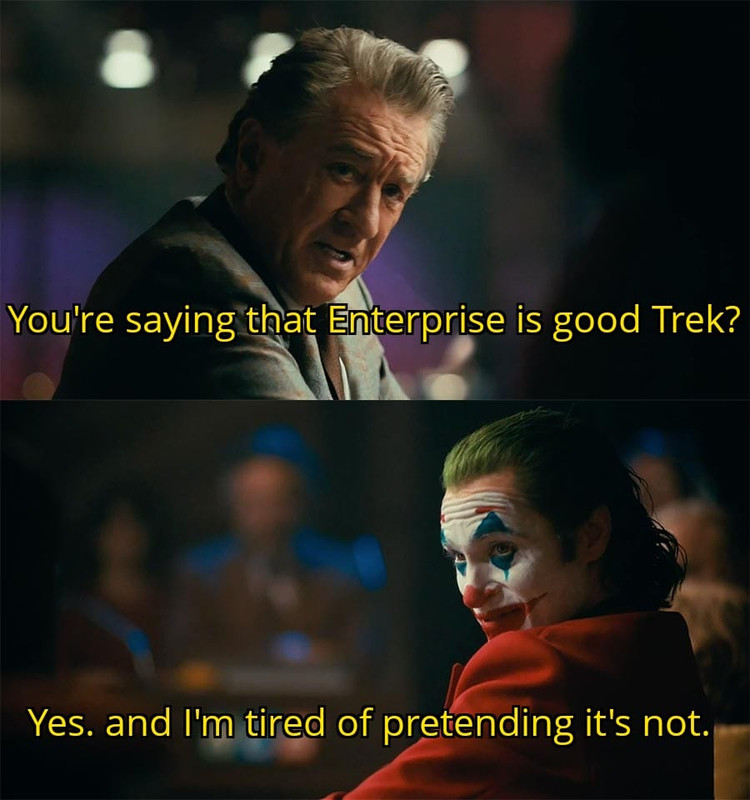I've got three guesses that all feed into each other:
1. TOS,
Phase II, and TNG all had full-runs. Whereas in our timeline: TOS was cut short,
Phase II never happened, and only TNG had a full run (which I'll define as breaking 100 episodes and ending on its own terms). Ultimately, we did get three series that broke 100 episodes and ended on their own terms, but they were TNG, DS9, and VOY. So, in FAMK, it's TOS,
Phase II, and TNG. They called it a "trilogy" of series, and they were done. They didn't feel like any more series were necessary.
2. With the real space program taking off, audiences would probably be more interested in series that took place in space that were more "realistic" and more closely reflected their
actual space program and where it might
really end up in their future. The more "real" space travel feels, the more realistic the audience would want it to look. More like
Alien &
Aliens. More like
2001: A Space Odyssey. And, yes, because this is Ron Moore's series and you knew this was coming, more like his
Battlestar Galactica.

3. In FAMK, maybe the producers felt it would be in poor taste to create a new Star Trek series without Gene Roddenberry. Without the demand for more series (see #1), no one wants to become known as the person who dropped the ball. On top of the belief that Star Trek had seen its day and belonged to a different era (see #2). It's also worth noting that if TNG ran five seasons, just like TOS and
Phase II, then Gene Roddenberry would've died during TNG's final season. In which case, it would only add to
perception of they shouldn't continue on without him. Even if the show still runs seven seasons, the perception can still be there, but they just let TNG finish its run before calling it quits.


